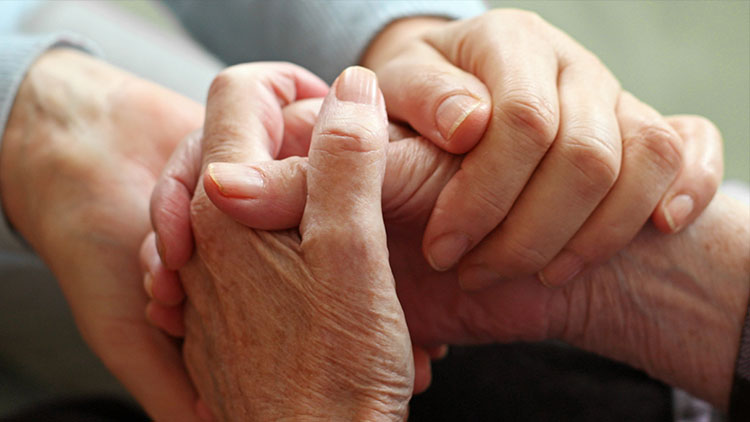- About Us
- Our Staff
- Services
- Locations
- Resources
- Contact Us
- Blogs
- We're Hiring
- Request An Appointment

Coping with Grief

Grief Counseling for Aurora, IL. Naperville, IL. Oswego, IL and Surrounding Area
Losing someone or something you love or care deeply about is very painful. You may experience all kinds of difficult emotions and it may feel like the pain and sadness you’re experiencing will never let up. These are normal reactions to a significant loss. But while there is no right or wrong way to grieve, you can find healthy ways to cope with the pain though grief counseling that, in time, can renew you and permit you to move on. Here at Waterford Counseling we offer counseling for grief to folks in Aurora, Illinois; Oswego, Illinois; Naperville Illinois and surrounding areas.
Grieving is normal?
Grief is a natural response to loss. The feelings you experience when grieving can at times feel very intense when something or someone you love is taken away. The more significant the loss, the more intense the grief will be. Most people think of grief only being associated with the death of a loved one—which is often the cause of the most intense type of grief—but any loss can cause grief.
- Divorce or relationship breakup
- Loss of health
- Losing a job
- Loss of financial stability
- A miscarriage
- Retirement
- Death of a pet
- Loss of a cherished dream
- A loved one’s serious illness
- Loss of a friendship
- Loss of a feeling of safety after a trauma
- Selling the family home
Significant losses can trigger intense grief. However, even subtle losses can also lead to feelings of grief. For example, you might experience grief after moving away from home, graduating from college, changing jobs, selling your family home, or retiring from a career you loved.
Everyone grieves differently
When you seek counseling for grief here at Water counseling, your counselor will help you understand that grieving is a personal and highly individual experience. How you grieve depends on many factors, including your personality and coping style, your life experience, your faith, and the nature of the loss. Everyone grieves in their own way and in their own time . The grieving process takes time. Healing happens gradually; it can’t be forced or hurried—and there is no “normal” timetable for grieving. Some people start to feel better in weeks or months. For others, the grieving process is measured in years. Whatever your grief experience, it’s important to be patient with yourself and allow the process to naturally unfold.
Myths and facts about grief
MYTH: The pain will go away faster if you ignore it.
Fact: Trying to ignore your pain or keep it from surfacing will only make it worse in the long run. For real healing it is necessary to face your grief and actively deal with it.
MYTH: It’s important to be “be strong” in the face of loss.
Fact: Feeling sad, frightened, or lonely is a normal reaction to loss. Crying doesn’t mean you are weak. You don’t need to “protect” your family or friends by putting on a brave front. Showing your true feelings can help them and you.
MYTH: If you don’t cry, it means you aren’t sorry about the loss.
Fact: Crying is a normal response to sadness, but it’s not the only one. Those who don’t cry may feel the pain just as deeply as others. They may simply have other ways of showing it.
MYTH: Grief should last about a year.
Fact: There is no right or wrong time frame for grieving. How long it takes can differ from person to person.
Are there stages of grief?
You have probably heard that their are “stages of grief.” In 1969, psychiatrist Elisabeth Kübler-Ross introduced what became known as the “five stages of grief.” These stages of grief were based on her studies of the feelings of patients facing terminal illness, but over the years these stages have been generalized to other types of negative life changes and losses, such as the death of a loved one or a break-up.
The five stages of grief:
- Denial: “This can’t be happening to me.”
- Anger: “Why is this happening? Who is to blame?”
- Bargaining: “Make this not happen, and in return I will ____.”
- Depression: “I’m too sad to do anything.”
- Acceptance: “I’m at peace with what happened.”
If you are experiencing any of these emotions following a loss, it may help to know that your reaction is natural and that you’ll heal in time. However, not everyone who grieves goes through all of these stages—and that’s okay. Contrary to popular belief, you do not have to go through each stage in order to heal. In fact, if you do go through these stages of grief, you probably won’t experience them in a neat, sequential order, so don’t worry about what you “should” be feeling or which stage you’re supposed to be in.
Kübler-Ross herself never intended for these stages to be a rigid framework that applies to everyone who mourns. In her last book before her death in 2004, she said of the five stages of grief: “They were never meant to help tuck messy emotions into neat packages. They are responses to loss that many people have, but there is not a typical response to loss, as there is no typical loss. Our grieving is as individual as our lives.” This is one of the important truths that you will learn from your grief counselor her at Waterford Counseling serving Aurora, Illinois; Oswego, Illinois; Naperville, Illinois and surrounding areas.
Grief can feel like a roller coaster
Instead of going through a series of stages, if you are grieving you might feel more like you are on a very unpleasant roller coaster, full of ups and downs, highs and lows. Like many roller coasters, the ride tends to be rougher in the beginning, the lows may be deeper and longer. The difficult periods should become less intense and shorter as time goes by, but it takes time to work through a loss. Even years after a loss, especially at special events such as a family wedding, the birth of a child, ore special holidays or celebrations you may still experience a strong sense of grief.
Common symptoms of grief
While loss affects people in different ways, you may experience the following symptoms when you are grieving. Just remember that almost anything that you experience in the early stages of grief is normal—including feeling like you’re going crazy, feeling like you’re in a bad dream, or questioning your religious beliefs.
- Shock and disbelief – Right after a loss, it can be hard to accept what happened. You may feel numb, have trouble believing that the loss really happened, or even deny the truth. If someone you love has died, you may keep expecting him or her to show up, even though you know he or she is gone.
- Sadness – Profound sadness is probably the most universally experienced symptom of grief. You may have feelings of emptiness, despair, yearning, or deep loneliness. You may also cry a lot or feel emotionally unstable.
- Guilt – You may regret or feel guilty about things you did or didn’t say or do. You may also feel guilty about certain feelings (e.g. feeling relieved when the person died after a long, difficult illness). After a death, you may even feel guilty for not doing something to prevent the death, even if there was nothing more you could have done.
- Anger – Even if the loss was nobody’s fault, you may feel angry and resentful. If you lost a loved one, you may be angry with yourself, God, the doctors, or even the person who died for abandoning you. You may feel the need to blame someone for the injustice that was done to you.
- Fear – A significant loss can trigger a host of worries and fears. You may feel anxious, helpless, or insecure. You may even have panic attacks. The death of a loved one can trigger fears about your own mortality, of facing life without that person, or the responsibilities you now face alone.
- Physical symptoms – We often think of grief as a strictly emotional process, but grief often involves physical problems, including fatigue, nausea, lowered immunity, weight loss or weight gain, aches and pains, and insomnia.
What if the Grief doesn’t go away?
The experience of grief is not something a person ever recovers from completely, but time typically decreases the intensity and duration of the difficult feelings. If you find that over time the difficult feelings are not diminishing, and as a matter of fact you start to feel overwhelmed and depressed, you may be experiencing what is known as Complicated Grief. The term complicated grief refers to a persistent form of bereavement that dominates a person’s life, interfering with daily functioning for an extended period of time.
Symptoms of complicated grief are nearly identical to those of acute grief, and again, the length of time it takes for a person to grieve is highly variable and dependent on context. But when symptoms are interminable without improvement, lasting for at least one year or more and interfering with one’s ability to return to routine activities, complicated grief may be implicated. Prolonged symptoms may include:
- Intense sadness
- Preoccupation with the deceased or with the circumstances surrounding the death
- Longing or yearning for a sense of relief
- Feelings of emptiness or meaninglessness
- Difficulty engaging in happy memories
- Avoidance of reminders of the deceased
- Lack of desire in pursuing personal interests or plans
- Bitterness or anger
Should I seek Counseling for Grief?
If you find that your grief-related thoughts, behaviors, or feelings are extremely distressing , unrelenting, or incite concern from others, you may want to seek professional help. Waterford grief counselors can help you find effective ways to cope with your loss and assist you in working your way though the grief process.
Each experience of grief is unique, complex, and personal. That is why your grief counselor at Waterford will tailor treatment to meet your specific needs. Your counselor will help you find ways to seek support from others, take care of yourself during this very stressful process, express your feelings in tangible ways that promote healing, and move your life once again toward normalcy and hope. If you want support for yourself though your current grief, feel free to contact Waterford Counseling serving Aurora, Illinois; Oswego, Illinois; Naperville, Illinois and surrounding areas. We would be honored to help.

Oswego Location
Quick Links
Copyright © 2024 - Waterford Counseling & Psychological Services. All right reserved.
Powered By: Aguilera Web Design


